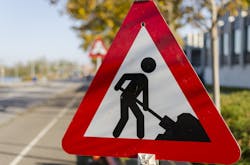POLICY: Feds weigh whether carbon pollution should be measured in highway performance
The U.S. Department of Transportation is weighing whether it should move ahead with new performance standards that would require transportation projects to track, measure and reduce carbon pollution.
In tens of thousands of public comments delivered last week, environmental groups, business organizations and local transportation departments argued that the proposal could curb climate change and modernize the nation’s transportation systems.
A 2012 transportation law established performance measures for roads and bridges in the areas of safety, infrastructure condition, system reliability and freight movement.
But in April, the Federal Highway Administration (FHWA) signaled it would measure greenhouse gas emissions from new transportation projects in the performance standards.
The public comment period on the proposal closed on Aug. 20 and the agency has been flooded with feedback.
But whether greenhouse gas emissions should be used to measure highway and bridge performance has been a point of contention.
The American Road and Transportation Builders Association (ARTBA) joined nearly two dozen other groups in submitting comments in fierce opposition to the proposal, maintaining that it could lead to a cumbersome regulatory process that would slow down transportation projects and delay infrastructure improvements.
